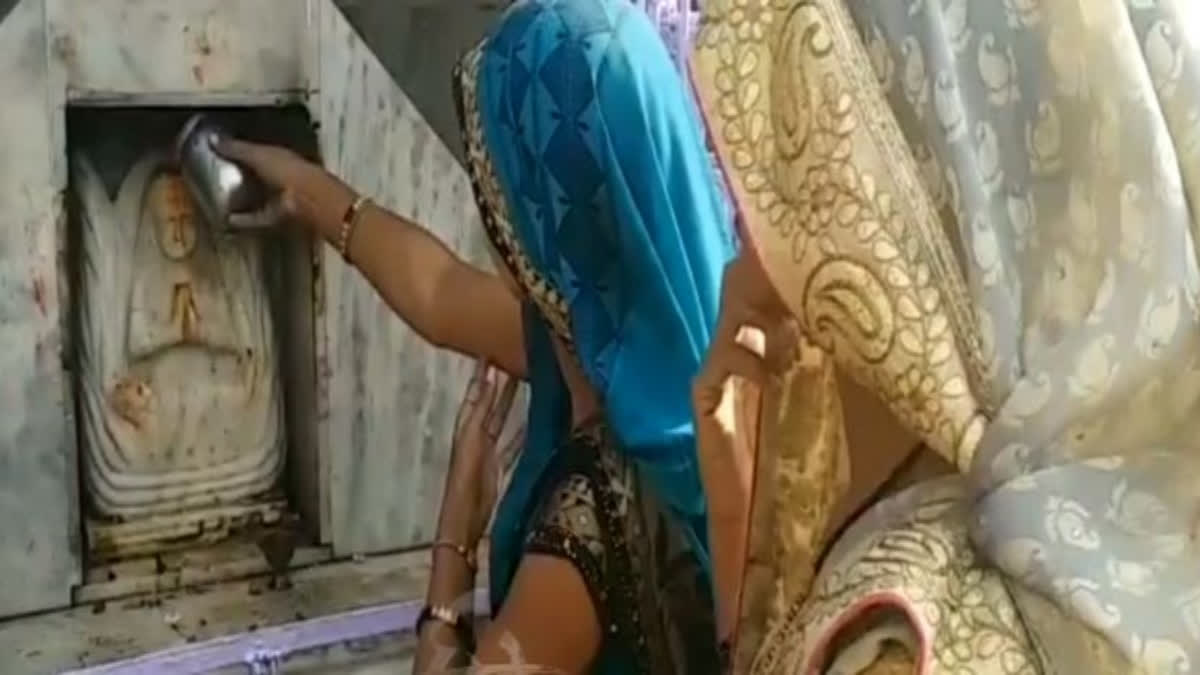No Karva Chauth for married women in this Mathura village in 250 years Mathura:In a reverse trend, married women in Uttar Pradesh's Mathura abstained from observing Karva Chauth, the most celebrated occasion for married women in north India for the long lives of their husbands.
Also read: Love knows no bounds: Women inmates observe 'Karva Chauth' in Mathura jail
Usually, they follow solah shringar or sixteen adornments and observe the total fast extended lives of their husbands. Women are usually seen with vermilion on their foreheads and colorful bangles in their hands and offering prayers to the moon.
There is a belief among women folk in the Mathura village that if they observe Karva Chauth, then their husbands will die. They believe that ever since the curse of a married woman whose husband was killed on the day of Karva Chauth day befell this village, married women who ever attempted observing fast ended up losing their husbands' lives.
Women have been following this tradition for about 250 years. This tradition has been followed for centuries here in Bagha village which lies close to Surir which is 40 kilometers away from Mathura, the district headquarters.
Apart from this, the married bride does not follow solah shringar or sixteen adornments here. On the day of Karva Chauth, women in the village do not even wear vermillion on their foreheads and colorful bangles in their hands.
Here the married women go to the temple of Sati and offer water. After offering puja, they return home. In this Bagha village, women believe that if married women observe Karva Chauth fast, their husbands die. The village elders said earlier many women, who did not believe in the curse of Sati and observed fast on Karva Chauth, met with tragic fates.
Legend has it that the daughter of Brahmin parents was going to her in-laws' house sitting in a cart. The people of the Thakur community of Ram Nagla stopped that cart. They accused the married woman and her husband of buffalo theft.
After an altercation between both parties, the members of the Thakur community had beaten the husband of the bride to death. After this murder, the married woman cursed the people of the village that just like her husband had died on the day of Karva Chauth, any woman who observes Karva Chauth in the village would lose her husband. Since then, married women in the village have abstained from observing Karva Chauth.
